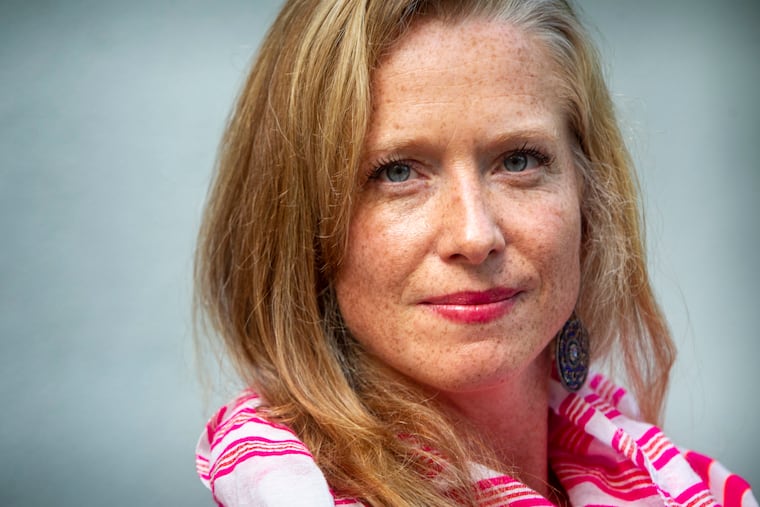‘You were so racist’: How being called out helped me fight my own white supremacy | Opinion
Dismantling racism takes more than just reading a few books — but that work requires commitment and endurance.

The podcast interview was dragging on for more than’ two hours. My family was downstairs waiting for me to make dinner, and I was trying to wrap up a complex conversation about race with a neat little bow so I could get on with my day. Feeling depleted and frustrated, I finally excused myself and left my friend and cohost, Aurora, to finish up. Later, I poured myself a stiff drink and tried to forget it had ever happened.
But Aurora never fails to hold me accountable. “You were so racist in that interview yesterday,” she said the next morning.
I knew she was right. I’d fallen back on my racist tendencies out of habit and complacency, by checking out and cleaning up while my podcast guest was baring her soul. I’d been dismissive, impatient, and self-serving. That podcast interview was a reminder that without building up the strength and fortitude to do this tough, introspective, emotionally challenging work of deconstructing racism in myself and my life, it’s way too easy to default to my white supremacist conditioning and cause more harm to people of color.
» READ MORE: ‘No white people today.’ Sometimes, I just need a break from dismantling white supremacy. | Opinion
In the wake of the death of George Floyd at the hands of Minneapolis police and the worldwide unrest that followed, more and more white people are examining their racist mind-sets. These days, it’d be easy to look at your social media feed and think that building the stamina to do this work is all reading books and watching Netflix documentaries. Those are pieces of the puzzle, but, trust me, if you only join a book club, there will be no lasting change. It’s like researching the history of running without ever lacing up your sneakers.
By listening to Aurora and holding myself accountable — as I did after that tough interview — I’ve learned a few ways to build the endurance to stay (imperfectly) in the conversation about race.
Humanize the problem
Over the last few years, I’ve learned that one of my greatest sources of motivation to change is pain. The pain I felt when Aurora turned to me and said, “Kelly, I love you, but I need you to be a better friend, and a better person,” made me want to change. Understanding that my complacency around race issues was causing my dear friend harm was more than enough to get me to start doing the hard work.
Start small and build
When I first started this work, I could barely run around the block, metaphorically speaking. When I knew there was so much work to do, it was hard to know how to even start. But I was diligent. I showed up every day, logging mileage — a $20 donation here, a podcast there. Once comfortable, I increased my mileage by calling police departments, attending webinars, diversifying my social media feed, and unlearning whitewashed history. Like training for a long run, the more frequently we run, the farther we can go, the greater our stamina will become.
Focus on the core problem
Spoiler alert: The problem is white supremacy. In working to dismantle it, it’s critical that we know what problem we are solving. To extend the running metaphor, if we are running in the wrong direction, our energy is wasted. I work to be mindful of every step I take by asking myself: Is this helping to dismantle white supremacy or uphold it?
Lean on community
My community keeps me accountable and props me up when I lose my motivation or hope.
» READ MORE: White people’s newfound wokeness must go beyond social media | Opinion
Allow yourself to make mistakes
If I shut down, paralyzed with shame every time Aurora accurately told me I’m being racist, I wouldn’t have built the stamina I have. I try to accept that I am going to mess up and then remind myself that I cannot beat myself up about it. I must take accountability, and repair what I’ve damaged — and then keep on going. I also remind myself that it is my privilege to be building stamina in a white-centered world. I’m not doing this work while also having endured 400 years of trauma and oppression, fearing for my children’s lives, and weathering daily microaggressions. The least I can do is get used to being uncomfortable.
Kelly Croce Sorg, cohost of ”The Opt-In” podcast, is the daughter of former Sixers president and owner Pat Croce. Kelly thought she was “woke” until Aurora gifted her the book “White Fragility” by Dr. Robin DiAngelo, which radically shifted her worldview. On “The Opt-In,” Kelly engages in those uncomfortable but necessary conversations with her bestie Aurora Archer.